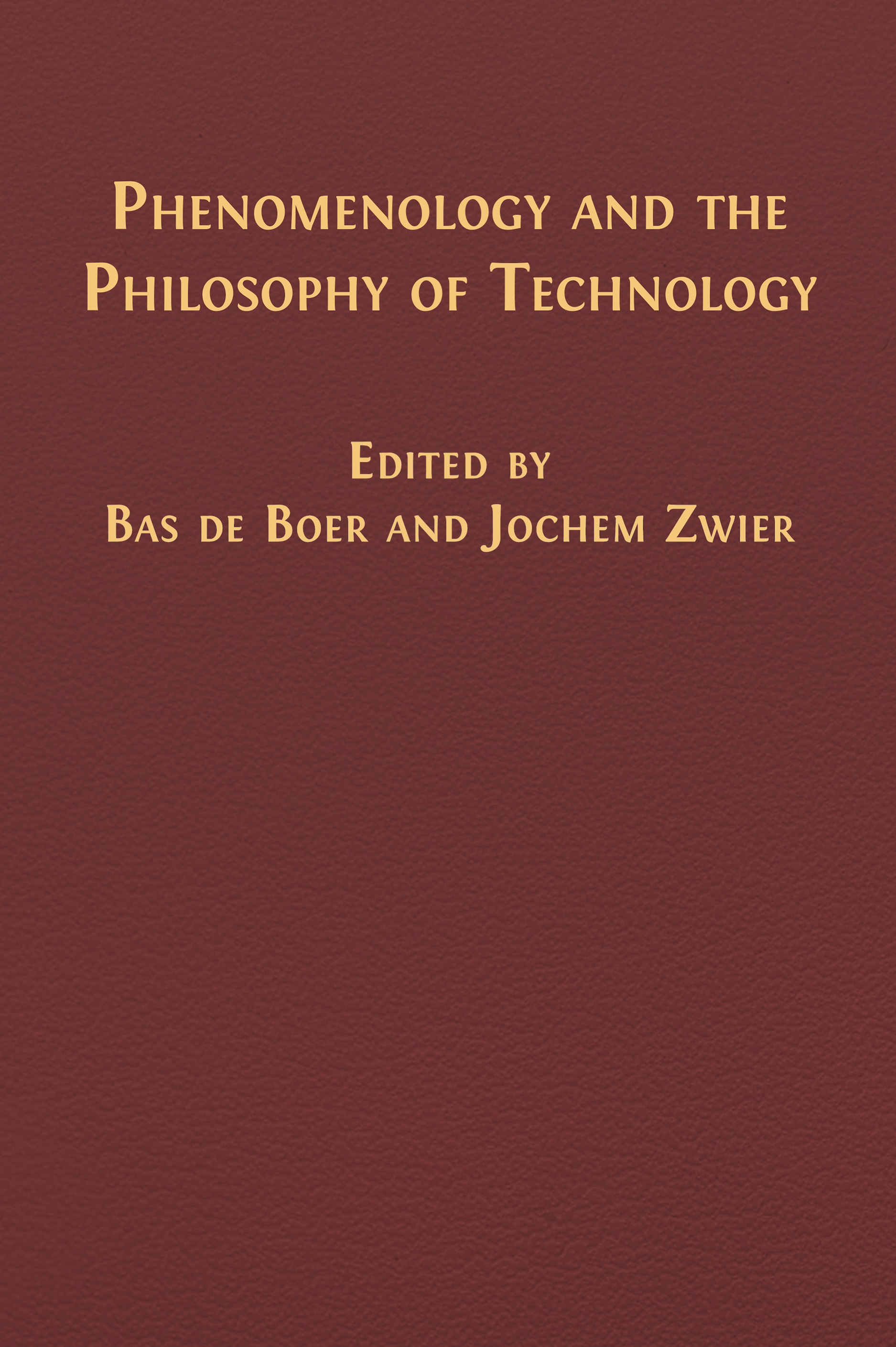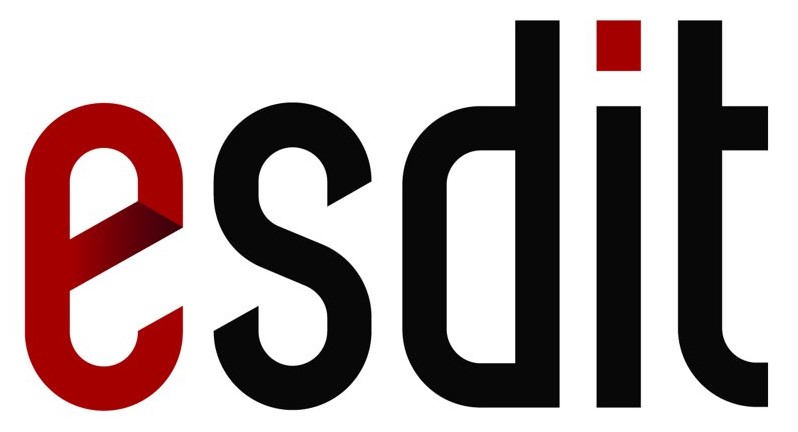2024

Marin, Lavinia
Attending to the Online Other: A Phenomenology of Attention on Social Media Platforms Book Chapter
In: de Boer & Jochem Zwier, Bas (Ed.): pp. 215-240, Open Book Publishers, 2024.
Abstract | Links | BibTeX | Tags: Embodied grounds, Empathy, Gaze, Moral agency, Online environments, Social Media Platforms
@inbook{nokey,
title = {Attending to the Online Other: A Phenomenology of Attention on Social Media Platforms},
author = {Lavinia Marin},
editor = {Bas de Boer & Jochem Zwier },
url = {https://www.esdit.nl/wp-content/uploads/obp.0421.09.pdf},
doi = {10.11647/obp.0421.09},
year = {2024},
date = {2024-10-16},
urldate = {2024-10-16},
pages = {215-240},
publisher = {Open Book Publishers},
abstract = {Lavinia Marin draws from phenomenology to lay bare another aspect of the ubiquitous presence of social media. By taking the phenomenology of attention as a starting-point, she show that attention is – rather than only a scare resource as analysts departing from the perspective of the attention economy would have it – foundational for our moral relations to other beings. She argues that there is a distinctive form of other-oriented attention that enables us to perceive other beings as living beings that are worthy of care. This mode of attention presupposes a form of affectivity and involves the recognition of the other as a moral being capable of forming judgments, as well as someone having certain vulnerabilities. Her analysis shows that by prioritizing homogenous interactions and standardization, social media platforms hinder us from engaging in this mode of attention, thereby undermining our capacity of recognizing to others as surprising, changing, and fallible beings.},
keywords = {Embodied grounds, Empathy, Gaze, Moral agency, Online environments, Social Media Platforms},
pubstate = {published},
tppubtype = {inbook}
}
Lavinia Marin draws from phenomenology to lay bare another aspect of the ubiquitous presence of social media. By taking the phenomenology of attention as a starting-point, she show that attention is – rather than only a scare resource as analysts departing from the perspective of the attention economy would have it – foundational for our moral relations to other beings. She argues that there is a distinctive form of other-oriented attention that enables us to perceive other beings as living beings that are worthy of care. This mode of attention presupposes a form of affectivity and involves the recognition of the other as a moral being capable of forming judgments, as well as someone having certain vulnerabilities. Her analysis shows that by prioritizing homogenous interactions and standardization, social media platforms hinder us from engaging in this mode of attention, thereby undermining our capacity of recognizing to others as surprising, changing, and fallible beings.
2023

van de Poel, Ibo; Sand, Martin
Responsibility beyond Control Book Section
In: Placani, Adriana; Broadhead, Stearns (Ed.): pp. 31-50, Routledge, 2023.
Abstract | Links | BibTeX | Tags: increase control, Moral agency, reciprocal relation
@incollection{vandePoel2023c,
title = {Responsibility beyond Control},
author = {Ibo van de Poel and Martin Sand},
editor = {Adriana Placani and Stearns Broadhead},
url = {https://www.esdit.nl/responsibility-beyond-control/},
doi = {10.4324/9781003276029-3},
year = {2023},
date = {2023-09-15},
urldate = {2023-09-15},
pages = {31-50},
publisher = {Routledge},
chapter = {302},
abstract = {Traditionally, control is seen as a precondition for responsibility. We are not, and cannot reasonably be held, responsible for things that are beyond our control. This seems to explain, for example, why we are not responsible for natural hazards or so-called acts of God. At the same time, it seems to explain why, as nature is increasingly under human control in the technological age, we acquire new responsibilities as our span of control increases. Against this traditional view, this chapter explores whether there can also be cases in which responsibility precedes control. More specifically, the chapter suggests that we can take or assume responsibility for things that are still beyond our control, and that with the motivation to assume forward-looking responsibility usually comes the impetus to increase control, otherwise the set responsibilities cannot be fulfilled. The chapter discusses under which conditions it may be reasonable to take responsibility for certain risks beyond our control, and whether it may sometimes be morally required to take responsibility for risks beyond our control. Instead of seeing control as necessarily preceding responsibility, the resulting picture is one in which responsibility and control have a reciprocal relation. This chapter illuminates that this reciprocal relation might best be understood via the underlying notion of moral agency.},
keywords = {increase control, Moral agency, reciprocal relation},
pubstate = {published},
tppubtype = {incollection}
}
Traditionally, control is seen as a precondition for responsibility. We are not, and cannot reasonably be held, responsible for things that are beyond our control. This seems to explain, for example, why we are not responsible for natural hazards or so-called acts of God. At the same time, it seems to explain why, as nature is increasingly under human control in the technological age, we acquire new responsibilities as our span of control increases. Against this traditional view, this chapter explores whether there can also be cases in which responsibility precedes control. More specifically, the chapter suggests that we can take or assume responsibility for things that are still beyond our control, and that with the motivation to assume forward-looking responsibility usually comes the impetus to increase control, otherwise the set responsibilities cannot be fulfilled. The chapter discusses under which conditions it may be reasonable to take responsibility for certain risks beyond our control, and whether it may sometimes be morally required to take responsibility for risks beyond our control. Instead of seeing control as necessarily preceding responsibility, the resulting picture is one in which responsibility and control have a reciprocal relation. This chapter illuminates that this reciprocal relation might best be understood via the underlying notion of moral agency.
